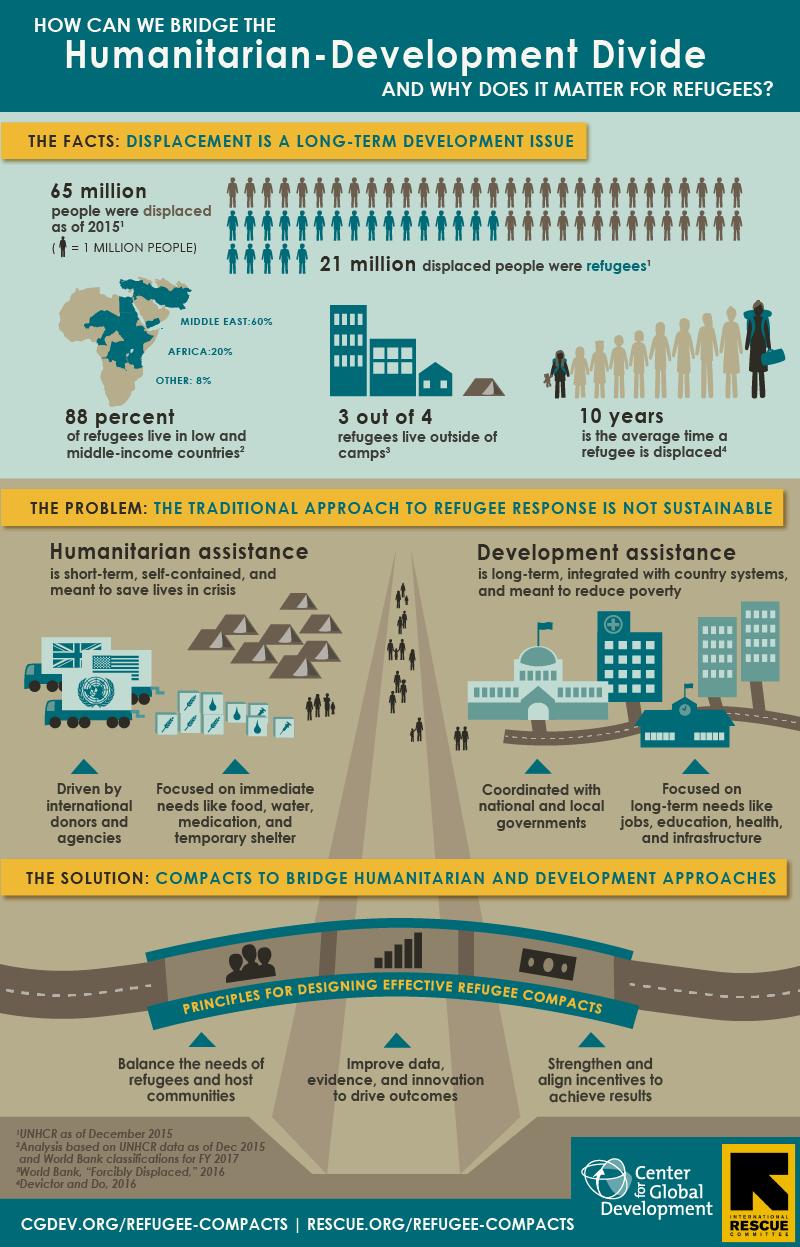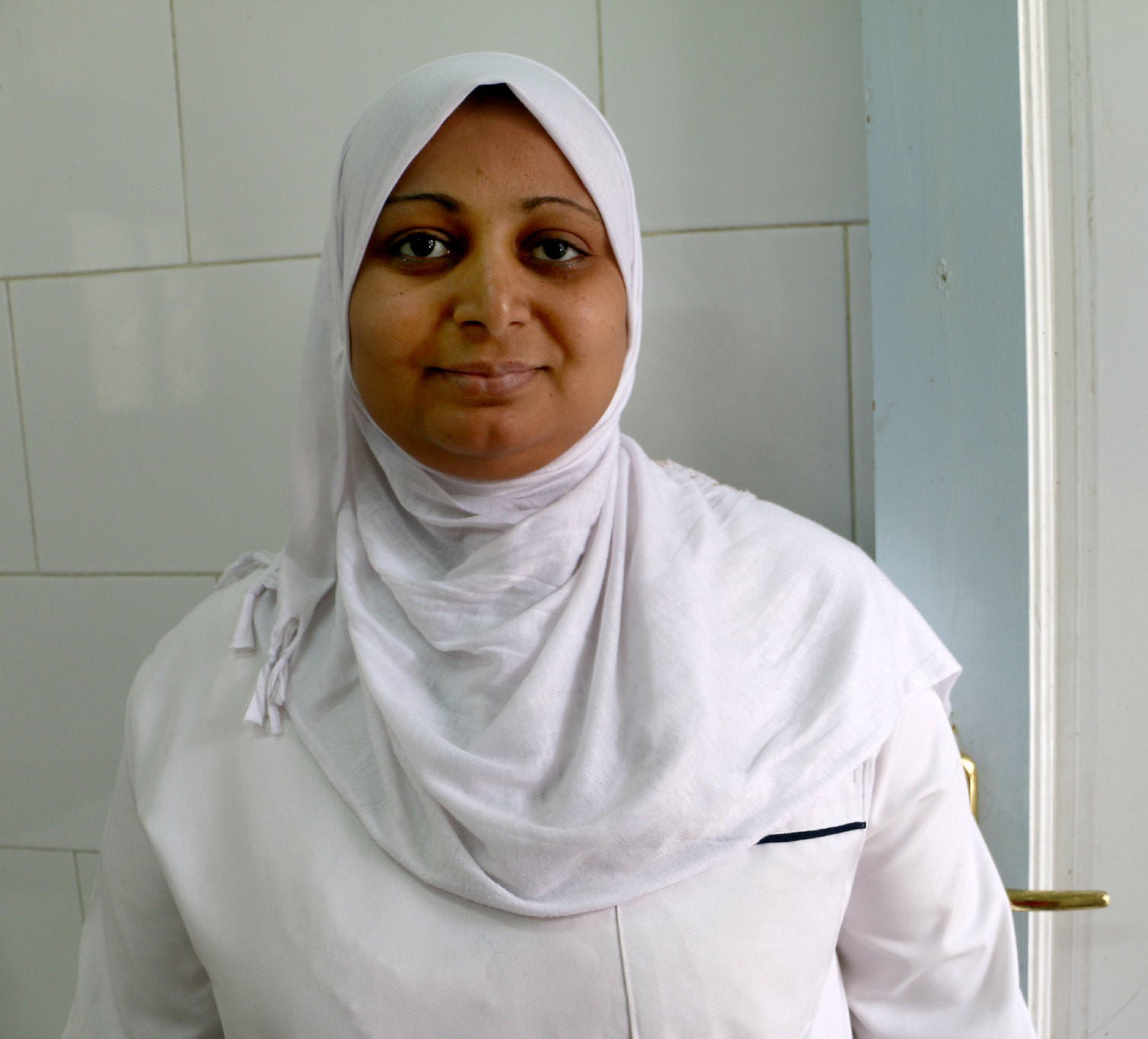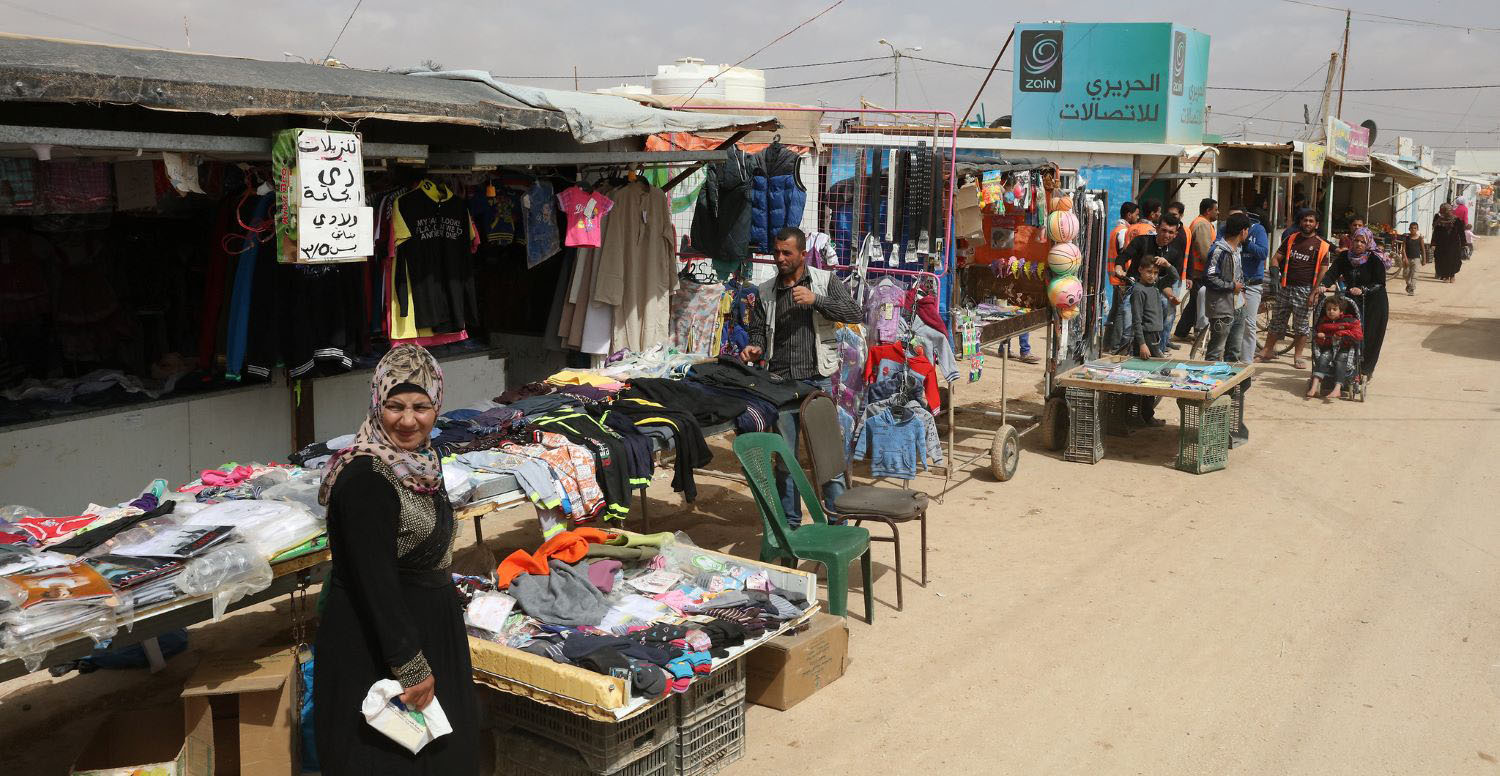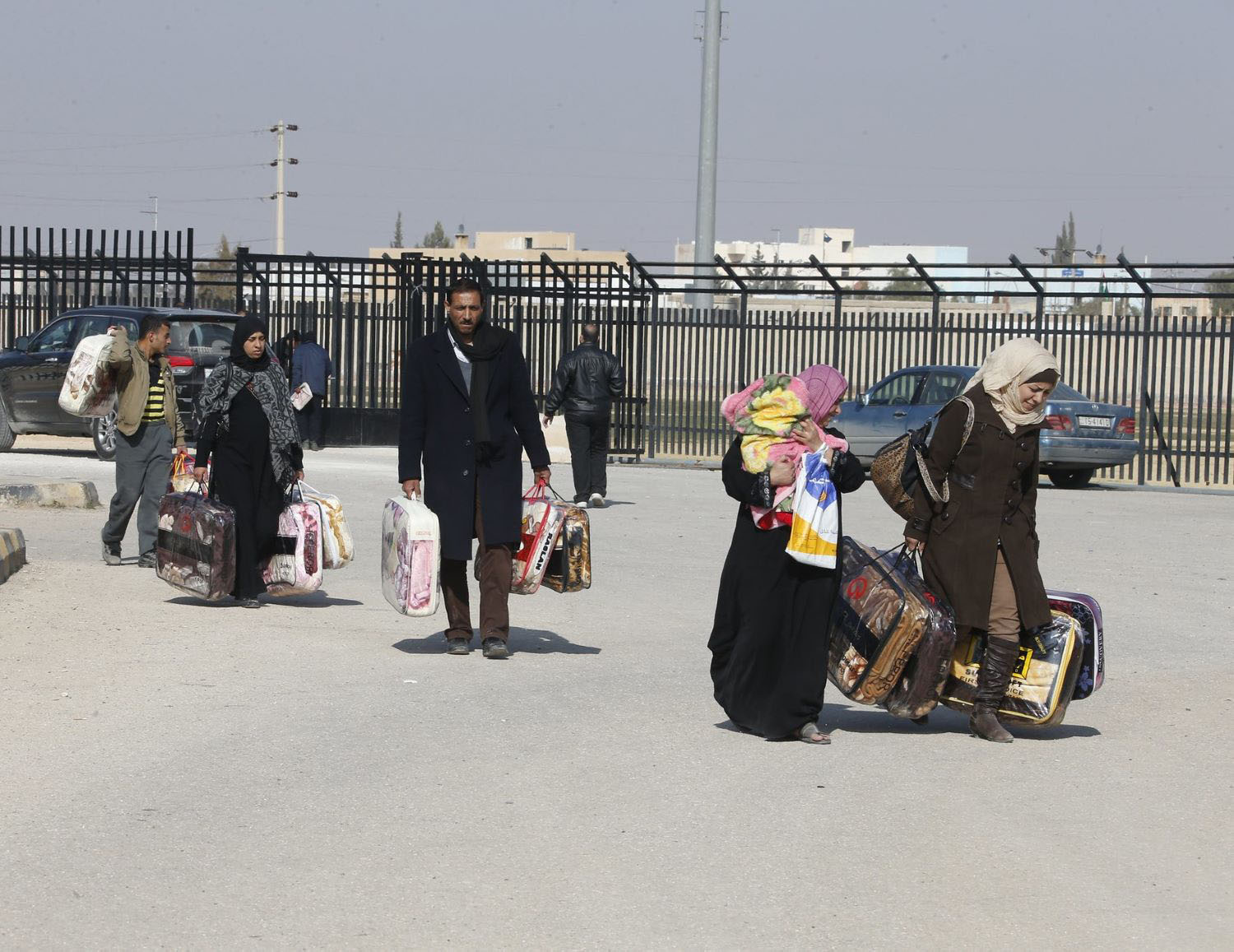The global refugee crisis will undoubtedly be top of mind this week as representatives from ministries of finance and development, international finance institutions, the private sector, civil society, and academia descend on Washington, DC to discuss issues of global concern. 2016 was a year filled with commitments by the international community to more equitably share the responsibility of supporting the world’s refugees. Among the biggest game-changers of 2016 were the compact agreements in Jordan and Lebanon, which brought new financing and encouraged policy changes to improve education and livelihoods opportunities for refugees and host populations. As conflicts and crises continue to burn on, forcibly displacing more and more people worldwide, 2017 must be about turning rhetoric into action.
This week’s spring meetings of the World Bank and IMF therefore come at an opportune moment—one where key actors can reflect on progress against last year’s commitments; determine and learn from what is and isn’t working well; and put measures in place to ensure that efforts moving forward lead to a real and positive impact on the lives and livelihoods of refugees and their host communities. Our new report, Refugee Compacts: Addressing the Crisis of Protracted Displacement, the result of a study group co-chaired by CGD and the IRC, is one input towards this end.
Compacts—agreements between host countries and humanitarian and development actors—are a promising solution to the long-recognized problem of the humanitarian-development divide. The traditional approach—where humanitarian agencies respond at the onset of a crisis to meet the needs of the displaced, and development actors coordinate with governments to reduce poverty for the country’s citizens—is leaving refugees stranded between basic emergency services and long-term development programs.
Instead, compacts can bring together donors and development and humanitarian actors under host-country leadership for multiyear agreements to achieve outcomes for both refugees and host communities. Within a compact, a range of actors make mutually reinforcing commitments to resources, policy changes, and projects designed to achieve a shared vision of self-reliance.
Drawing on our own initial framework for refugee compacts, and through an in-depth review of the Jordan and Lebanon compacts and similar approaches in other contexts, our report identifies important lessons for compact development. Together, this assessment reveals three core principles and 10 recommendations that policymakers should focus on to design effective compacts in refugee-hosting contexts:
 Tweet This
Tweet This
These concepts and practices are not necessarily new; in fact, many of our recommendations include well-known principles of aid effectiveness and best practices in development and humanitarian programming. However, building them in as process requirements for a compact at the start of a crisis strengthens the potential to leverage the confluence of incentives, political will, and expertise to advance joint solutions for both refugees and host populations.
The international community must continue to learn and iterate how to structure humanitarian-development collaboration in different contexts, especially through compact models. The emerging compact in Ethiopia, the possibility for new compacts in other regions and countries, and the piloting process of the Comprehensive Refugee Response Framework offer opportunities to build more effective responses to protracted displacement. There is also potential to underscore these principles and set global standards around effective refugee response frameworks as the preparation of a UN Global Compact on Refugees gets underway. The increasingly dire needs of refugees around the world for dignity, self-reliance, and a chance to thrive over the long term demand that we learn and act quickly.
CGD blog posts reflect the views of the authors, drawing on prior research and experience in their areas of expertise.
CGD is a nonpartisan, independent organization and does not take institutional positions.


 Tweet This
Tweet This



